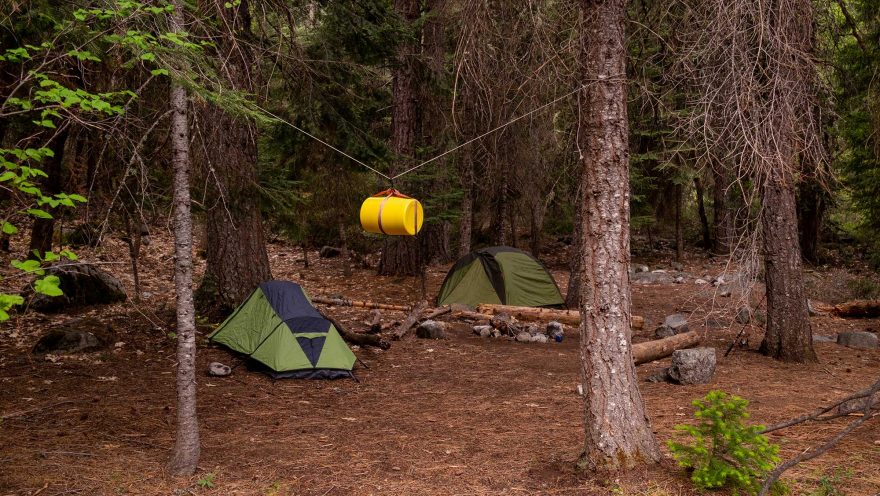
Nothing puts a damper on a camping trip faster than waking up in the middle of the night to the sound of a wild animal ransacking your campsite for food. This may sound like a scene straight out of a horror movie, but it’s not at all far-fetched. Fortunately, it is preventable and the answer is as simple as bear proof containers for camping.
Animals have incredibly acute senses of smell. Black bears, for example, are said to be able to smell food up to 20 miles away. Bear proof camping food storage containers mask the smell of food and toiletry items inside, even at a close distance. They’re also made of nearly indestructible materials, making them effectively, well, bear proof. This is important because, as terrifying as it is to encounter a bear rummaging through your food, it’s actually bad for the animals as well. It desensitizes them to people, creating a dangerous association between humans and food sources, and it can disrupt bears’ natural diets.
And Bears aren’t the only animals you should be worried about getting into your food in the backcountry. Raccoons, squirrels, and other smaller rodents can wreak major havoc on your food supply as well, relentlessly gnawing through hiking backpacks, tents, and anything else standing in the way of that wonderful-smelling food. The good news is that bear proof containers for camping are just as effective at keeping these critters out.
Whether you’re tenting it for a night in a developed campsite or headed out on a multi-day backpacking trip, having bear proof camping food storage containers is essential.
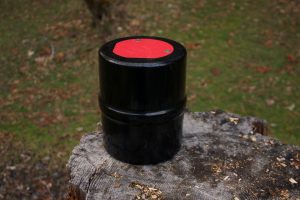
Best Bear Proof Containers for Camping
As you shop for bear proof camping food storage ideas, you’ll notice there are two main types: bear canisters and bear sacks, also called bear bags. Each of them is distinctly different and both have their pros and cons.
Bear canisters
Bear canisters are hard-shell cylindrical containers that are usually made out of hard, smooth plastic. They are designed so that there’s nothing a bear can latch onto. Almost all have some sort of locking mechanisms, such as screws or push tabs.
Most bear canisters are designed with backpackers in mind, so they come in a variety of sizes that fit nicely into a pack. Some also include a carrying case for easy attachment to the outside of your backpack.
There is an abundance of options for bear canisters and it’s a largely personal decision based on materials, weight, and color. We recommend getting a clear bear canister so you can easily see the contents without needing to open it.
Note: Some national parks, such as Yosemite, advertise that they rent bear canisters. However, parks have had historic visitation rates over the last year, so don’t rely on this. Play it safe and bring your own bear proof camping food storage containers.
Pros: Bear canisters are highly effective. In fact, bears learn quickly and often see canisters and simply move on. Plus, larger canisters make great camp tables or stools.
Cons: They’re bulky and heavy, easily adding a few pounds to your pack weight. Many also have lids that require a separate tool for locking and unlocking, which is not exactly convenient.
Bottom line: A tried-and-true option, bear canisters are the most effective way to protect your food and hygiene products from wildlife.
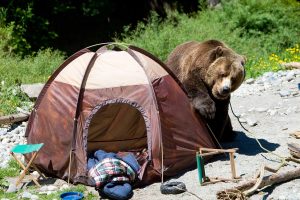
Bear sacks
Think of bear sacks, or bear bags, like wilderness-proof trash bags on steroids. They’re made of ultra-heavy-duty polyethylene, which is near impossible for bears or other animals to tear open, even with razor-sharp teeth and claws.
The obvious and perhaps largest benefit of bear sacks is their portability. Instead of a heavy, bulky bear canister, you have a packable sack that generally weighs half a pound or less. Bear bags also typically hold substantially more food than a single bear canister.
To further strengthen the protection of your bear sack, you can purchase separate liners, such as waterproof or odor-blocking models. There are also aluminum liners, which prevent the bag’s contents from being crushed if a bear does jostle the sack around.
You’ll find bear sack models specifically designed to keep raccoons, rodents, and other nuisance critters out, but skip those and purchase bear bags from the beginning, which are the toughest and most durable.
Pros: Bear sacks are lightweight and compact.
Cons: Bags aren’t as bear-proof as canisters because in theory (though it’s unlikely), a bear could carry the bag right off. Also, it’s important to note that many national parks and even national scenic trails, such as the AT and PCT, require bear canisters and will not permit campers or backpackers to use bear sacks.
Bottom line: The best option for bear proof camping food storage containers when space is at an absolute premium.
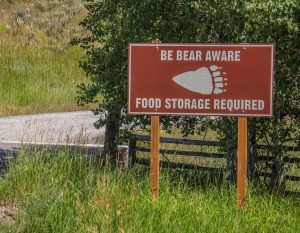
Tips for Camping Food Storage
Even with the best bear proof camping food storage containers, you should take some precautions in the backcountry. This protects not just you and your food supply, but wildlife as well.
- Trash should be treated just like food, as it’s equally tempting (i.e., smelly) to animals. In other words, don’t leave it out. Consider getting a bear proof container for camping specifically for garbage. At the very least, tie trash bags high up on a tree branch a couple hundred feet away from your campsite.
- Don’t leave food in your tent. In fact, make it a general rule to not bring food into your tent at all, just to be safe.
- Treat scented hygiene products as if they’re food. The scents attract animals in much the same way, so keep them inside your camping food storage containers.
- Don’t leave food or trash unattended, even for a few moments. Scent travels far and quickly in the forest — it only takes a matter of moments for a wild animal to reach your campsite. Clean up camp and put everything back in bear proof containers before you take that after-dinner walk.
- Even if you’re using a locked cooler or bear canister, it’s a good idea to secure it inside your vehicle overnight or if you’re away from camp during the day.
- To maximize space in your bear proof camping food storage containers, repackage food and toiletries whenever possible. Throw away cardboard and other bulky packaging and instead use Ziploc bags.
Taryn Shorr is an avid outdoor enthusiast, frequent traveler, and wannabe photographer based in southern Arizona. She lives for the opportunity to explore The Great Outdoors, both at home and in new destinations, and firmly believes that nature is a form of both therapy and religion.
Feature image by Elsa Amsterdam, Shutterstock; secondary images by MPH Photos, korCreate, and Eric Poulin, Shutterstock
We are committed to finding, researching, and recommending the best products. We earn commissions from purchases you make using the retail links in our product reviews. Learn more about how this works.
 Your Privacy Choices
Your Privacy Choices

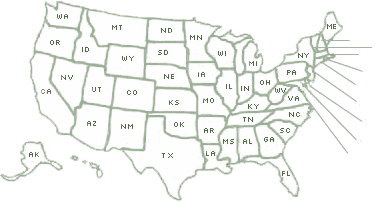
 The
The